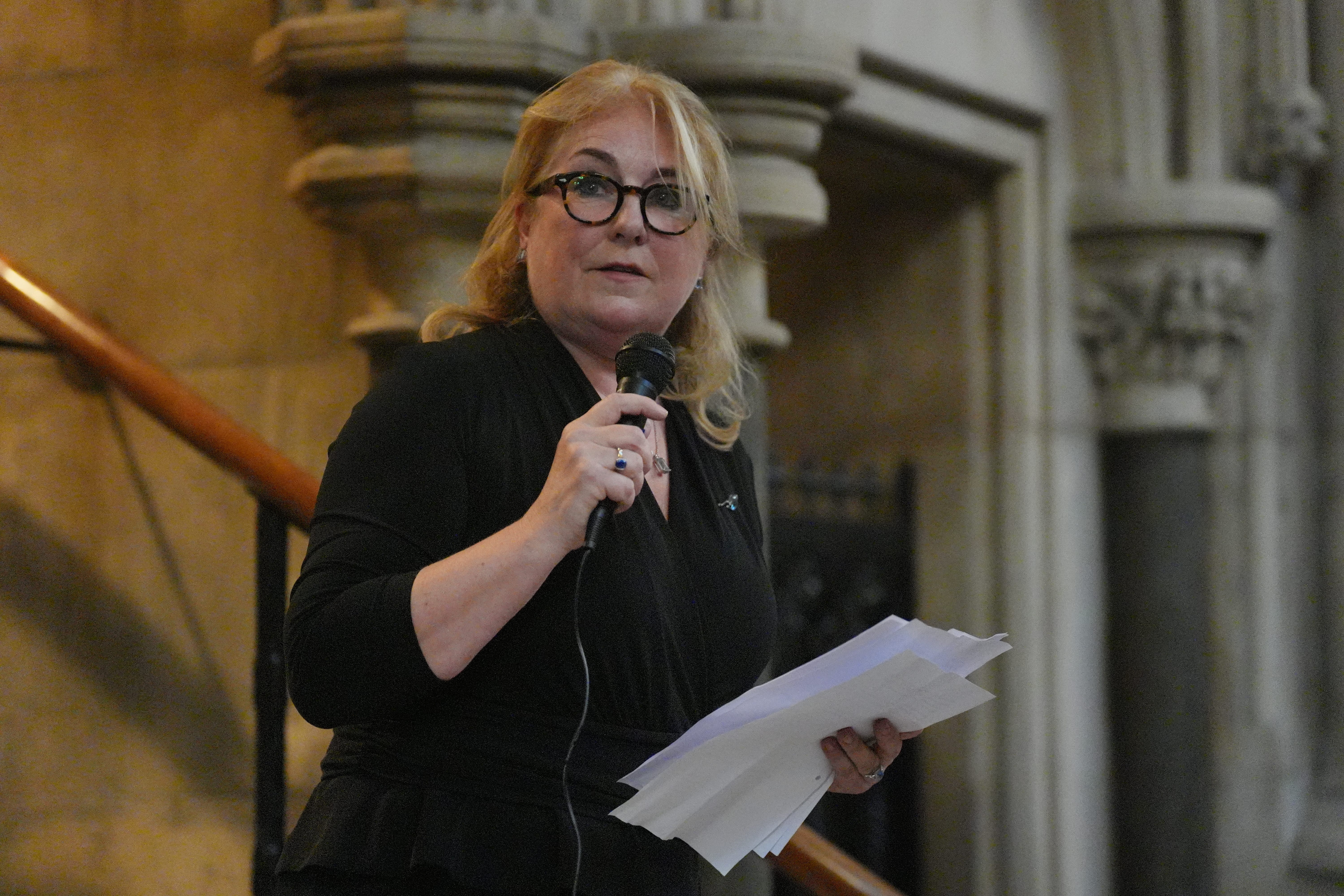This timely warning to Keir Starmer could upend our justice system
The new lady chief justice, Baroness Carr, delivered a surprising – and surprisingly sharp – rebuke to the prime minister for claiming to have cracked down on rioters, writes John Rentoul


The normalisation of women in senior positions in public life continues apace. Rachel Reeves, the first female chancellor, was sitting next to Angela Rayner as she stood in at Prime Minister’s Questions today, in the middle of a row of six women on the government front bench.
(Some parts of public life are less normalised than others: opposite the cabinet, Oliver Dowden was flanked by male shadow ministers – the Conservative benches in parliament being instantly identifiable as a quadrant of dark suits.)
The highest ranks of the judiciary have also been conquered. Sue Carr became the first lady chief justice a year ago, and on Tuesday she delivered a striking and powerful speech at the Mansion House in the City of London.
She said what you would expect the top judge in England and Wales to say in the run-up to a Budget, namely that, in order for the courts and judiciary to secure the rule of law, they need “sustainable and long-term funding”. She said: “We have a judicial system that has almost been taken for granted as the envy of the world.”
And she cannily secured a headline – in The Independent at least – by recounting how an anonymous judge had to “climb onto a court roof to clear a gutter that was blocked and causing a leak”.
So far, so much to be expected. She may be fortunate in that she serves concurrently with Shabana Mahmood as lord chancellor. Mahmood is only the second female lord chancellor – Liz Truss was the first, for less than a year in 2016-17 – but what is significant about Mahmood is that she appears to be an effective politician who will fight to secure decent funding for the criminal justice system.
Mahmood was one of three cabinet ministers (all women) who were reported to have written to the prime minister to protest against the Treasury’s attempt to constrain their departmental budgets.
Where Baroness Carr’s speech took an unexpected turn, however, was in her sharp reminder to Keir Starmer to keep his nose out of the courts’ business. “Suggestions that the listing of riot cases speedily in the criminal courts was a consequence of government action or pressure was a false constitutional narrative,” she said.
Ouch. That was the top judge in the country accusing the prime minister of telling a falsehood. Starmer has repeatedly implied that he ensured the rioters in Southport and elsewhere this summer faced swift and inescapable justice. “I guarantee you will regret taking part in this disorder,” Starmer said in a TV address days after the riots. He said that “this violent mob do not represent this country” and that “we” will “bring them to justice”.
Personally, I thought that what Starmer said was reasonable. What he meant was that the nation, including its criminal justice system, would not tolerate law-breaking, and that he stood with the judiciary in the exercise of its independent powers to list and hear the cases of those accused of disorder. In truth, Starmer was also engaged in brute politics: it was essential for the new government’s credibility that the public was confident that it had a grip on the public order situation.
But it can do no harm to remind this new government that judges and judges alone are responsible for deciding which cases should be heard quickly, and what sentences should be handed down.
It would be easy for Starmer to assume that, just because he was a senior office-holder in the criminal justice system himself, as director of public prosecutions, everyone will assume that he will always take care to respect constitutional principle. After all, it is only “ideological” Tories such as Liz Truss who fail to respect the independence of the judiciary, is it not?
So the prime minister should accept his telling-off with good grace. After all, it may help him. If the listing of cases is “a judicial function”, as Lady Carr put it, then half of that rubbish about “Two Tier Keir” can be rebutted at once. The courts heard riot cases quickly because the judges understood that it was essential to the rule of law that justice – and its deterrence effect – be swift.
Starmer clearly supported the judges in that endeavour, but he should not have claimed to have done it himself. He should stick to the politician’s job, which is to ensure that the courts system is adequately funded.






Join our commenting forum
Join thought-provoking conversations, follow other Independent readers and see their replies
Comments